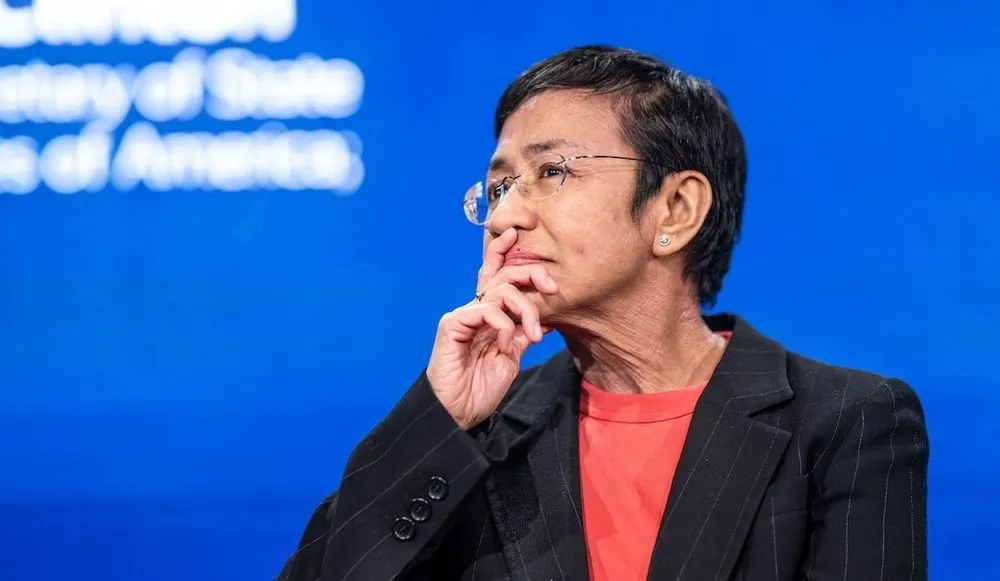Big Tech working in ‘service of dictators-to-be’ warns Nobel Peace Prize winner
Technology companies allowing online trolls to target women journalists, politicians and researchers, alongside government censorship and propaganda, are facilitating a growing risk of real-world authoritarianism around the globe, a Nobel laureate has warned.
Maria Ressa — the Filipino and American journalist who jointly received the 2021 Nobel Peace Prize for her efforts to safeguard the freedom of expression — warned about the “corruption of the information ecosystem” on an all-woman panel at the Munich Security Conference.
In a discussion about civil resistance, Ressa cited online trolls targeting herself, as well as the panel moderator Hillary Clinton and fellow panelist Masih Alinejad — an Iranian activist who has faced state-sponsored cyber operations and assassination attempts on U.S. soil — as examples of this corruption.
Ressa was described as “one of the very first people to write about and sound the alarm about disinformation, which is the great enabler of dictators,” by Clinton, who was also sat alongside Belarusian opposition leader Sviatlana Tsikhanouskaya, and Zin Mar Aung, the minister of foreign affairs for the National Unity Government opposing the military junta in Myanmar.
“Don't forget, in Belarus, there was a RyanAir flight that was forced to land just to get a journalist,” said Ressa. “So for me, it begins in the information ecosystem, it begins in the corruption of the information ecosystem.”
The problem with this corruption, warned Ressa, is that it is generally not being driven by “a dictator like Lukashenko, or Iran, or the military in Myanmar,” but by corporations reducing physical lives into data. “And that data is being used to insidiously manipulate us through our emotions, and bringing out the worst of humanity in the service of dictators-to-be,” she warned.
Read More: Belarus opposition leader on working with big tech and countering propaganda under dictatorship
Ressa noted how “starting in 2014, not coincidentally the same time that Russia began information operations that led to the annexation of Crimea, and which was in 2022 used to invade Ukraine itself,” the leader of the Philippines, Ferdinand Marcos Jr., began to reinvent his family's legacy.
His father, Ferdinand Marcos, was known as a kleptocrat who had stolen $10 billion from the country's central bank by 1986, but his son worked to promulgate a narrative of his father as “the greatest leader the Philippines had ever known.”
Ressa said “in May 2022, we overwhelmingly elected Ferdinand Marcos Jr. as our president.” But, she noted, Rodrigo Duterte “who had a brutal drug war, was succeeded. Marcos did win. And so I feel like we move from hell to purgatory.”
Democracies need to unite
Tsikhanouskaya cautioned against making deals with dictators: “I sometimes hear now politicians saying that maybe we have to give dictators what they want, maybe that's how we can stop this war.” But giving dictators what they want “will embolden them,” she said, and give them time to increase their capacity for future interference.
Alinejad, who has been moved through 11 different safe houses by the FBI due to Tehran's intent to kill her, said she was “very, very pleased to be among brave and powerful women” on the panel and, of its title “Rebels with a Cause” commented it was “amazing” to be called a rebel.
“Because in my country, women like me are called prostitutes, they're called the agent of the CIA, the agent of MI6, the agent of Mossad. But women in my country, they have [their own] agency, they want to bring the regime down.”
She warned that the CRINKS (China, Russia, Islamic Republic of Iran, and North Korea) are united, and that democratic countries must unite too, particularly in taking action against the clerical regime in Iran and the similarly misogynistic Taliban in Afghanistan by isolating their “gender apartheid” governments.
“Believe me, if the women of Iran and Afghanistan are not free, you will not be free. When I came to America, I heard one of the famous expressions saying that what happened in Vegas is going to stay in Vegas. What happens in the Middle East is not going to stay in the Middle East. It's going to infect the rest of the world. So be with us,” said Alinejad.
Zin Mar Aung stressed that democratic countries needed to talk in the same language that dictators understand, citing it as a key lesson the National Unity Government learned following the Spring Revolution in 2021 in response to the military coup d'état.
“Dictators don't understand the language of nonviolence. The only thing that they understand is force. So that is why our people are trying to talk to them in the language that they understand,” she explained.
“I think we need to recalculate and also reformulate, to stop the authoritarian regime in my country and across the world. Because authoritarian regimes are very united, you know, that we have the same story, common experience, like Myanmar military is quite close to the Russia, Belarus, Iran, they are quite close together and helping each other,” said Zin Mar Aung, warning: “But democratic countries are not united enough to fight against authoritarianism in the world.”
“We're in the last two minutes in the doomsday clock for democracy. This is the election year, right?” said Ressa. “Here we are in Germany, where I two days ago went to where Hitler stood under an arch and had the first rally for the Nazi Party, 10 years before he gained power. And everyone kind of pooh-poohed that he would gain power. We know this is possible now. You know the threats. We've lived through them. It isn't out there, it's here. So please, act.”
Read More: Complete coverage from the 2024 Munich Cyber Security and Security Conferences
Alexander Martin
is the UK Editor for Recorded Future News. He was previously a technology reporter for Sky News and a fellow at the European Cyber Conflict Research Initiative, now Virtual Routes. He can be reached securely using Signal on: AlexanderMartin.79



